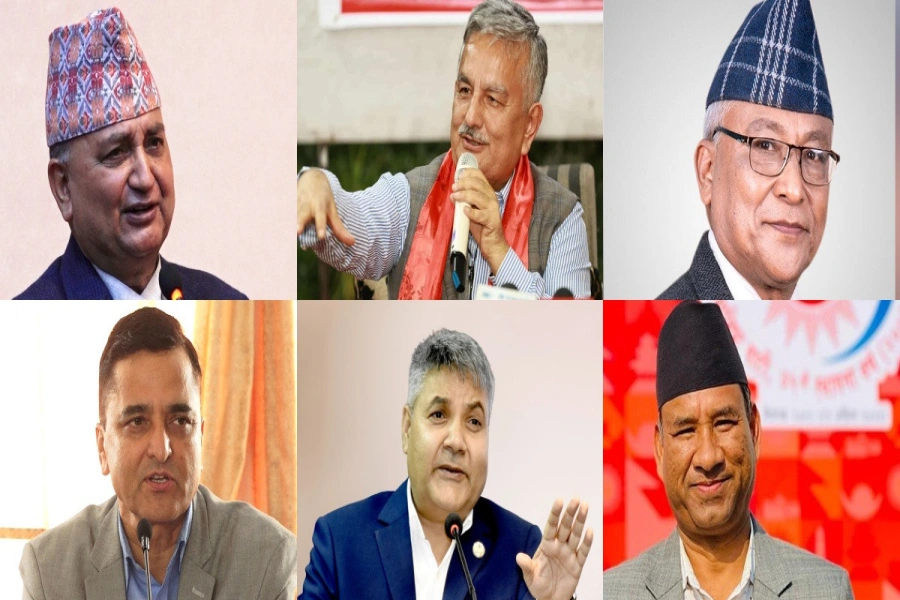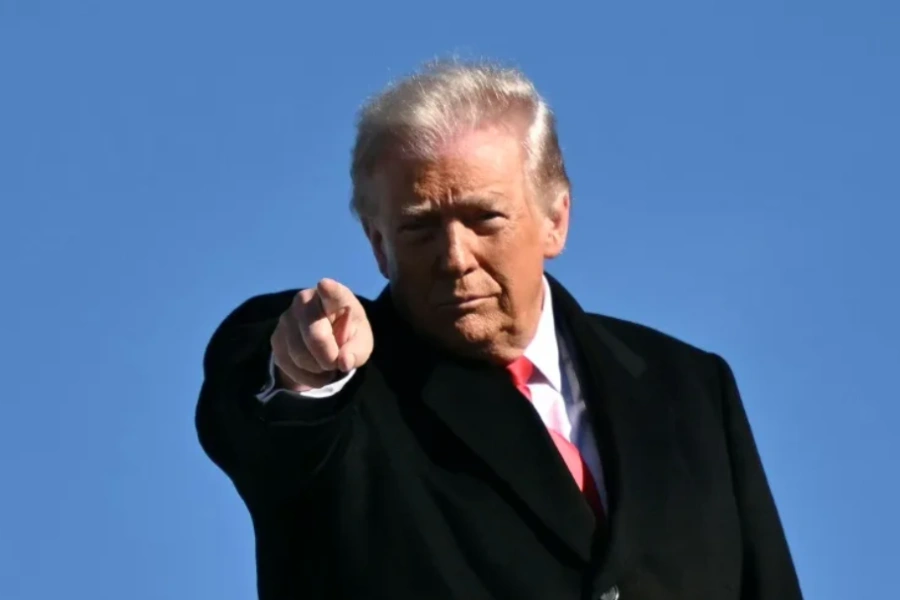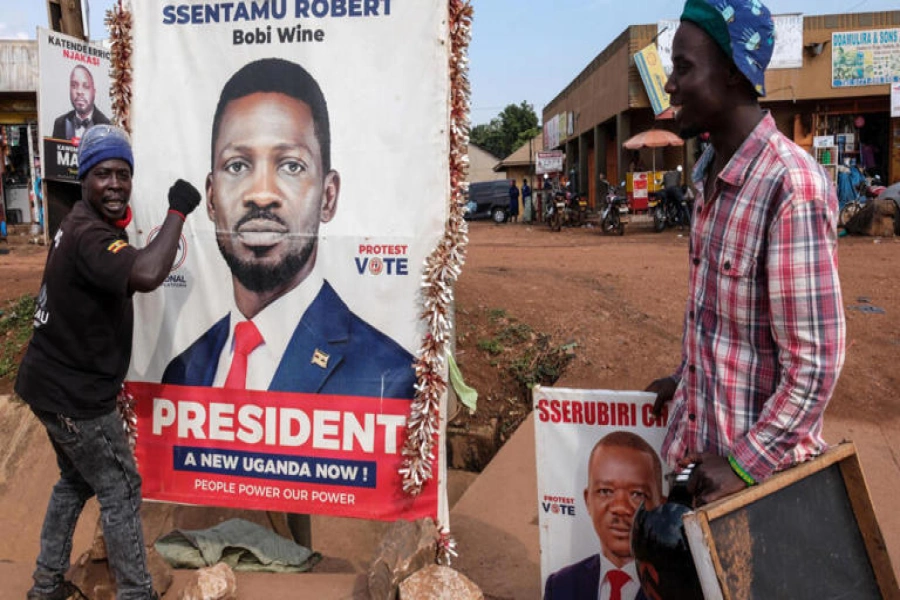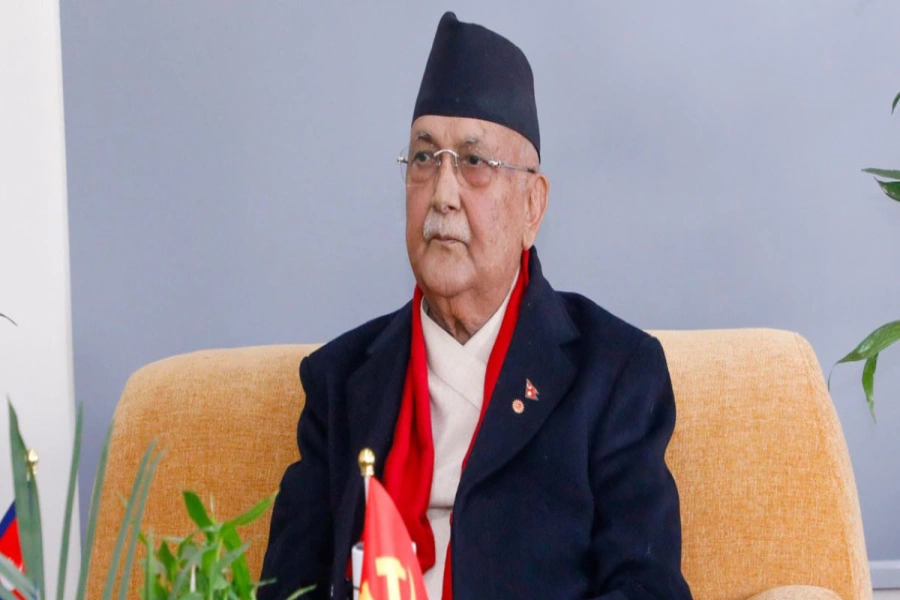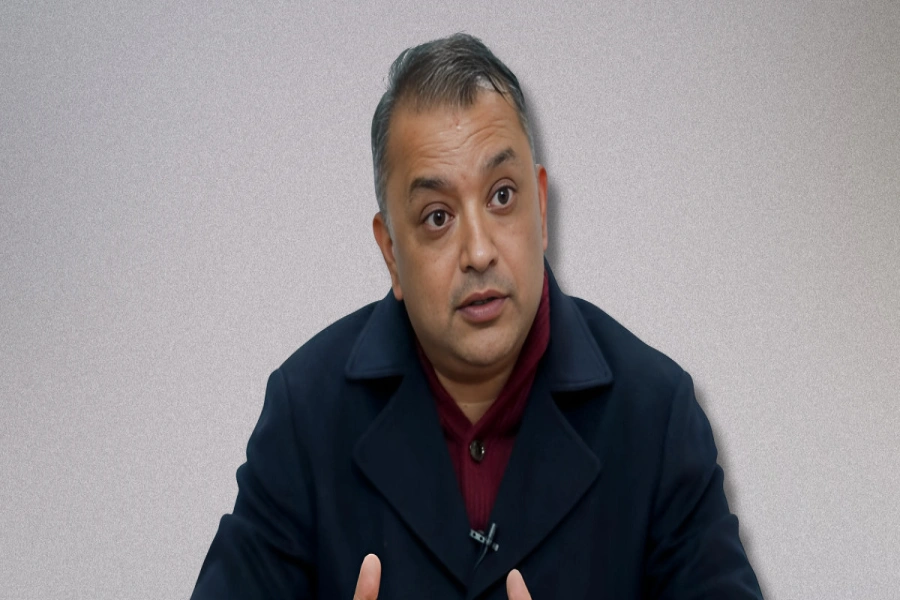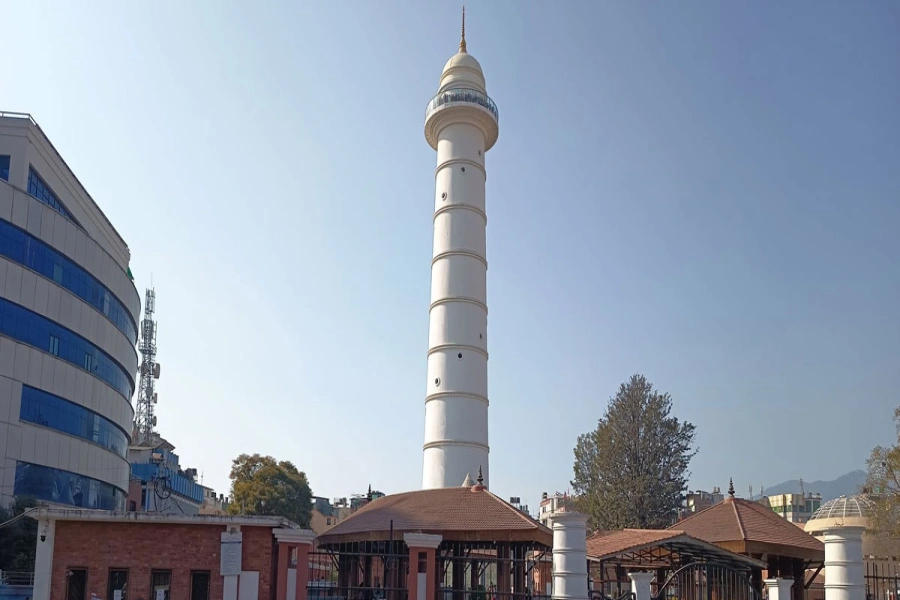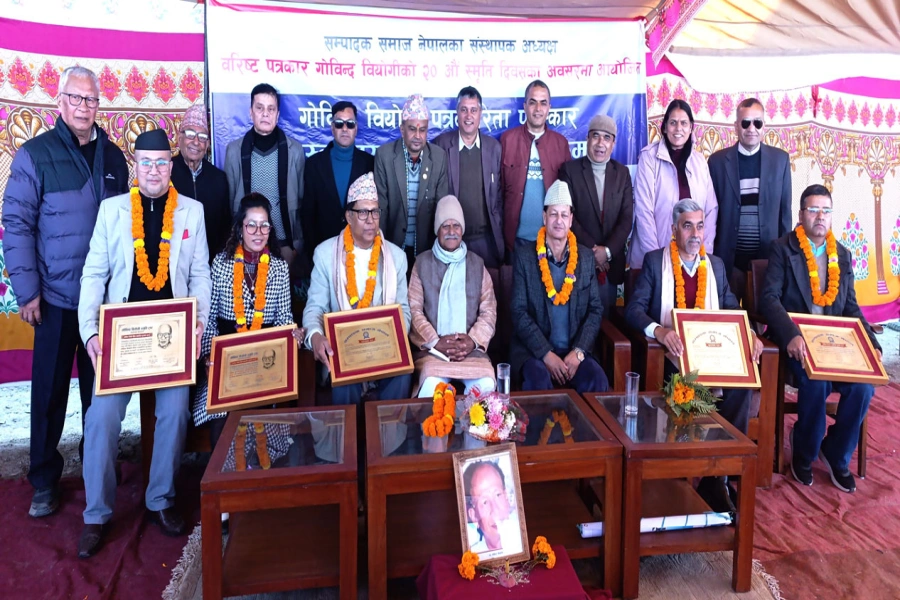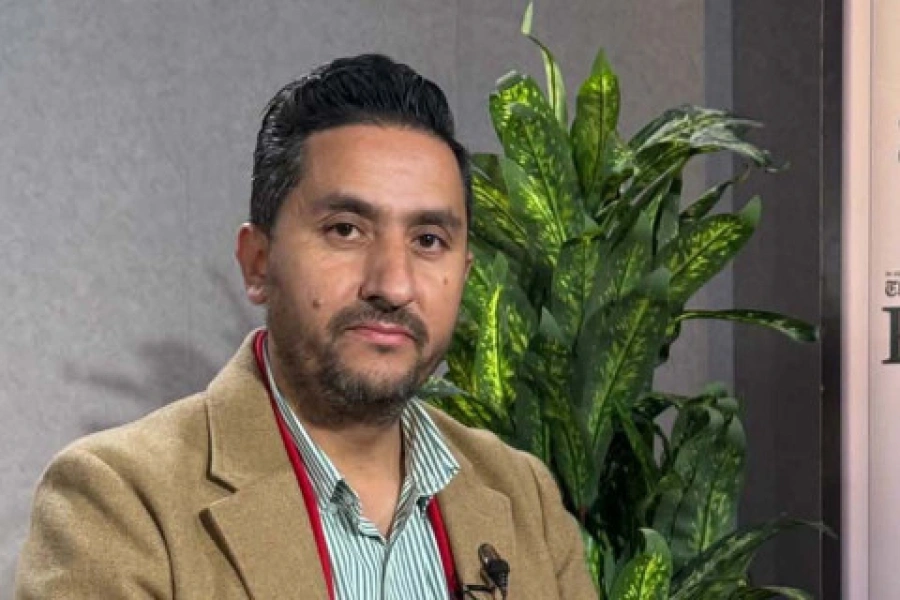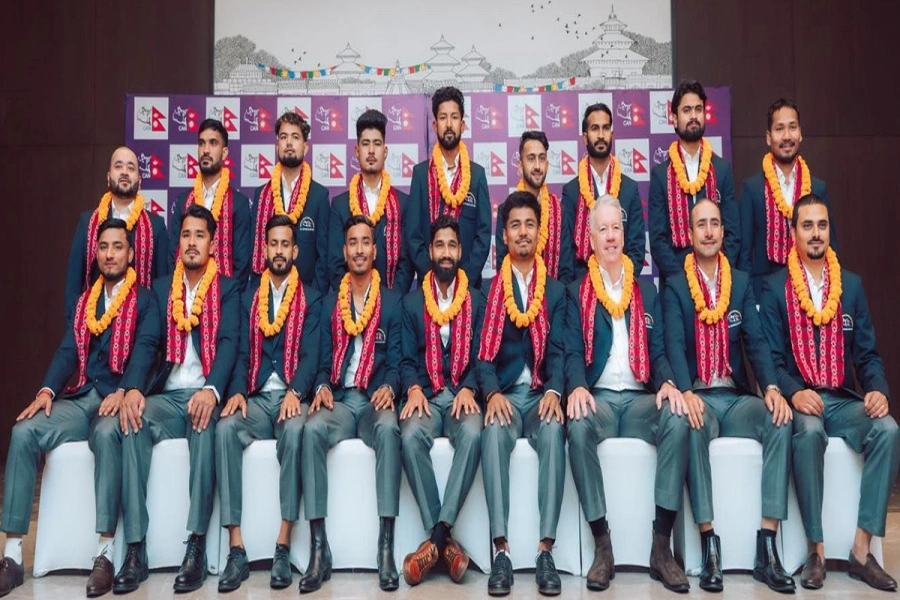KATHMANDU, Dec 22: Mobile phone is the third largest traded commodity in Nepal after petroleum products and iron, according to the officials of Mobile Phone Importers Association (MPIA).
The sector, which is witnessing 40 percent growth year on year is estimated to have Rs 36 billion turnover in the current fiscal year. Mobile phones have not only changed people's lifestyle but also made signficant contributed to the government coffer.
Despite all the contribution, the sector has been dogged by high tax, illegal imports, grey market and unfair competition in the market. Nepal Republic Media held an interaction with the team of the newly formed Mobile Phone Importers Association (MPIA) as well as the representative of the telecommunications regualtor. Excerpts;
We cannot entertain the idea of stopping new brands
Ananda Raj Khanal,
Director, Nepal Telecommunication Authority
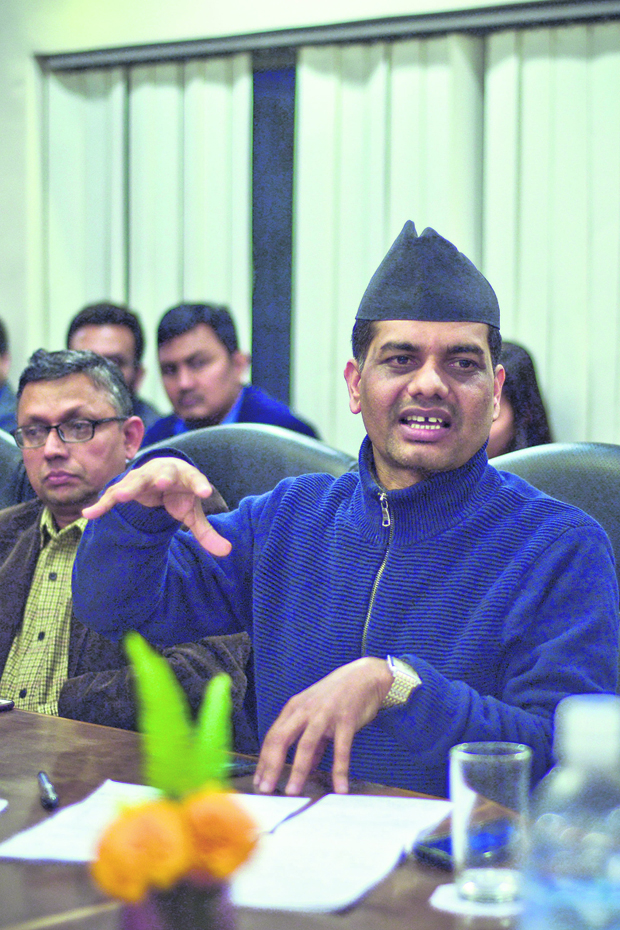
Importers have a big concern about the value added tax (VAT). But we cannot do address this problem as it falls under the jurisdiction of the finance ministry. Sometimes back, Global System Mobile Association (GSMA) had published a report about taxation of mobile phones around the world. According to the report, we are in the third position in the list of countries paying highest VAT. However, this report does not imply that we have been increasing tax rate. Earlier, Bangladesh, Pakistan and India were above us in imposing VAT on mobile phone. However, they seemed to have reduced their rate. The finance ministry does not study what would be the impact and benefit of reducing tax. It always calculates how much revenue it would generate from a certain sector.
There are various factors that are hindering our plan to enforce IMEI number system. One of them is the shortage of staff. At present, we have only two staff at our disposal to look after the issue. Despite this, we have managed to register 6.81 million IMEI numbers between April 13 and mid-December.
Mobile phones can be used to educate people. The country had 3.8 million illiterate people three years ago. If we could install educational materials in mobile phones, people could learn to read and write by using phones. So mobile phone has a potential to make millions of people literate in one go. Mobile distributors can implement this as part of their corporate social responsibility. By doing so, they can also do other ancillary businesses in the mobile phone market.
It is not appropriate for entrepreneurs to complain about competition in an open market economy. We can discuss on issues ranging from security to policy facilitation, but we cannot entertain the idea of stopping brands from entering into the market.
We would work toward checking unhealthy practices
Deepak Malhotra
President, MPIA
Desperate search for missing girls as nearly 80 dead in Texas f...

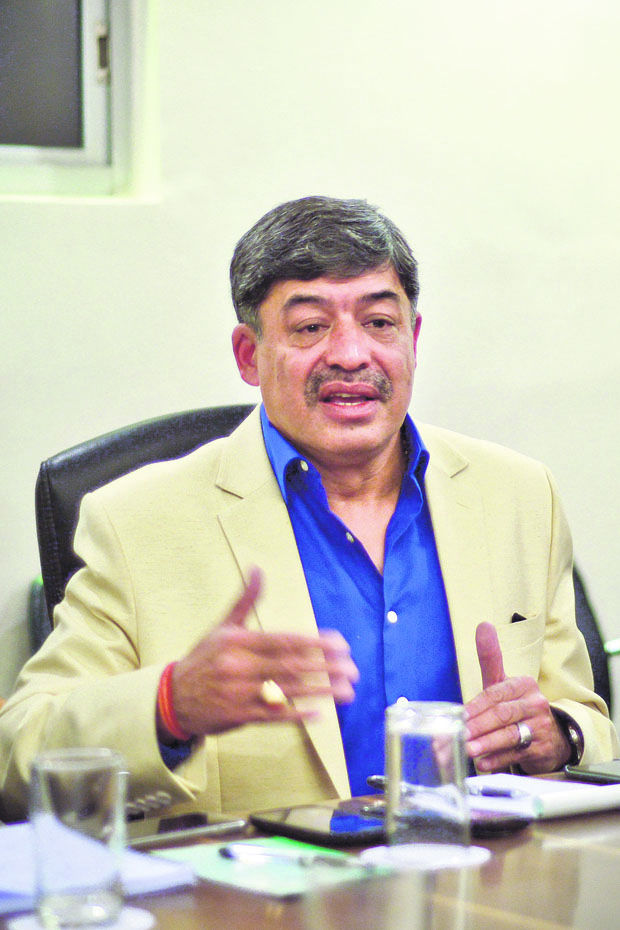
Our hard efforts over the last four-five years have finally paid off. We have managed to establish Mobile Phone Importers Association.
The grey market of mobile phones is very huge in Nepal. Following our requests, the government came up with a tool to curb such illegal practices by bringing down customs duty to zero and providing VAT refunds. The government found an easy way for us by returning 60 percent of the VAT that we pay. Because of this facility, the grey market could not challenge us. Before this facility was introduced, only 10 percent of handsets sold in Nepal would enter through legal channel. Now, 80-85 percent handsets are imported through legal channel. The facility was also beneficial for customers as it made mobile phones cheaper.
Due to frequency change of government, we have to tell officials time and again why VAT return is important for the market of mobile phones. There were rumors two years ago that the government was withdrawing the facility. What could be the alternative measure if the facility is withdrawn?
Issuing a white list with International Mobile Equipment Identity (IMEI) number could be an alternative measure. The manufacturer provides all IMEI numbers of mobile phones that we import to us and forward it to the Nepal Telecommunication Authority (NTA). These mobile phones are imported into the country only after the NTA register their IMEI numbers into its system. If this happens, mobile phones imported through illegal channel won't work in Nepal.
Smartphone users will increase once data price is reduced
Sanjay Agrawal
Vice president, MPIA

Mobile phone is the most traded product in Nepal after petroleum products and iron. If the sale continues to grow at this rate, it can become the largest traded commodity in Nepal.
Only 40 percent of the country's population has access to smartphone. Around 60 percent of the population is still to touch smartphone which means there still is big opportunity in the market. We have been fighting with the government for tax and VAT issues. Considering the contribution made by the mobile industry in the country's economy, the government should provide certain facility to this sector. The industry currently employs 4,000-5,000 people and annual turnover is more than Rs 25 billion.
We should not make any delay in upgrading to new technology. When 3G service was launched in Nepal, India was using 2G service. But over the years, India has developed a lot in the field of telecommunications and is now using 4G technology. The 4G service is likely to start in Nepal from January. But it will be in testing phase for more than three months.
Mobile data price is very expensive in Nepal compared to other countries. If leading operators like NTC and Ncell reduce data tariff, number of smartphone users will increase automatically.
We have succeeded in opening MPIA after our untiring efforts over the past three-four years. But lot of work is still to be done. Unhealthy competition is increasing in the market. Every month a smart phone brand is launched in the market. Is our smartphone market that big? It is very easy to launch a brand, but very difficult to sustain it in the market.
Withdrawal of VAT refund facility will flourish grey market
Amit Agrawal
General Secretary, MPIA
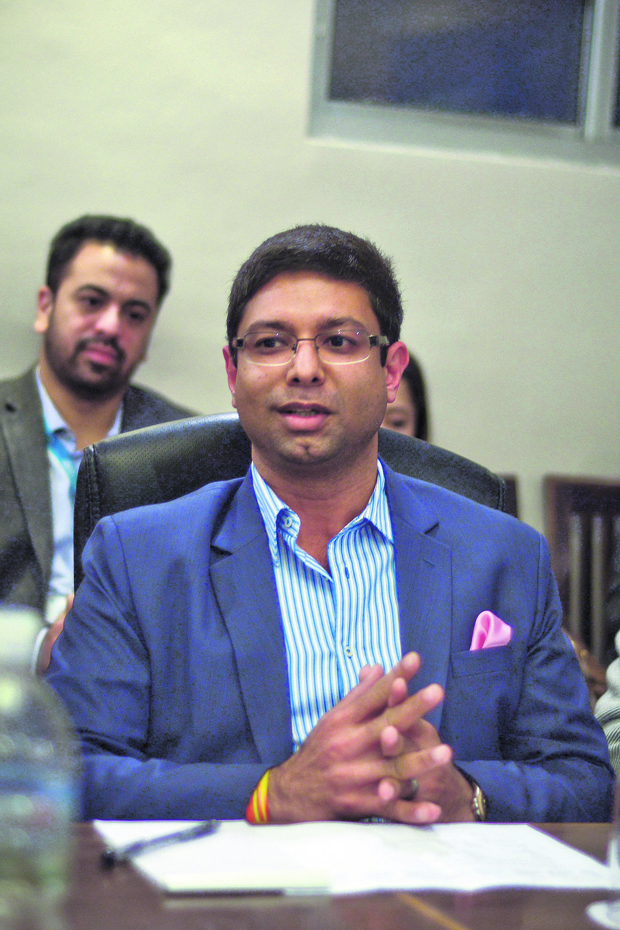
Mobile phone business in Nepal has been growing by 40 percent over the last three years. This shows that smartphone has become an important aspect in people's everyday life. Mobile phone subscription has reached 30 million, while country's population is only 26 million. This shows that mobile penetration has reached 113.68 percent.
Mobile phone industry recorded transaction of over Rs 25 billion in the last fiscal year. Total transaction has already reached Rs 12 billion in the first quarter of the current fiscal year. We expect the transaction to cross Rs 36 billion in this fiscal year. We paid Rs 1.65 billion to the government as VAT in the last fiscal year. It could increase to Rs 3.40 billion in this fiscal year.
There is unhealthy competition in the market. We feel that the supply is far higher than the market demand. Our association will work to create healthy competition in the smart phone market.
The withdrawal of VAT refund facility will affect consumers and flourish the grey market. If VAT refund facility is withdrawn, mobile phones will be cheaper in foreign countries than Nepal. It that happens, people travelling abroad will bring mobile phones with them which will affect the smartphone market as well as our economy. I think the mobile phone industry will expand further if VAT rate is reduced.
We have both challenges and opportunities
Prabhakar S Thapa
Executive Member, MPIA
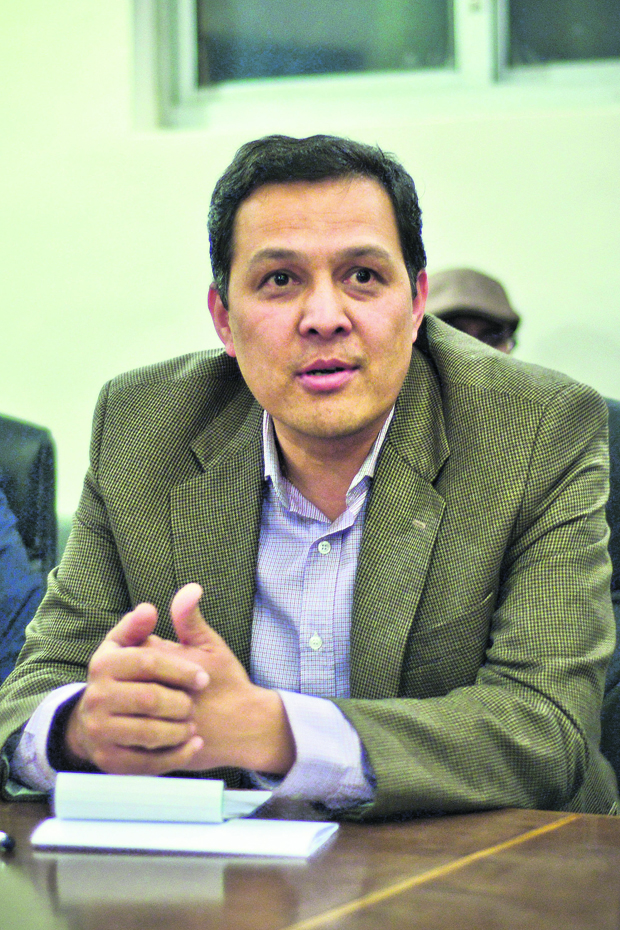
While we are still talking about 4G, many developed countries have already started migrating to 5.5G. Service providers are those who adopt the technology and connect the equipment with the network.
And, there are service developers who make it possible for us to do various things through use of technology and equipment. Convergence of various technologies into mobile phone is important for us. For example, taking picture and talking in phone were two different things which used to be done with two devices in the past. Now taking photo and video, recording audio, and making phone calls can all be done with a single mobile phone. Earlier, mobile phone was being used for entertainment. Now, people use mobile phones for infotainment thanks to smartphones.
While equipment manufacturer would be gradually focusing on increasing speed, decreasing bandwidth consumption and migrate data on higher package, handset manufacturer would be focusing on increasing processing speed, display and battery life. How we use the technology available to us is very important. Software developers help people to make optimum use of their device. We have both challenges and opportunities in leveraging the technology for nation building and taking the society on the path of prosperity. India is slowly embarking on a journey to introduce 'cashless' society. I don't know why our policymakers are not thinking in this direction. Nepal Rastra Bank, which spends huge amount of money for printing and circulating cash into the system, would make a substantial saving if the size of cash transaction is reduced.



-1768720371.webp)
